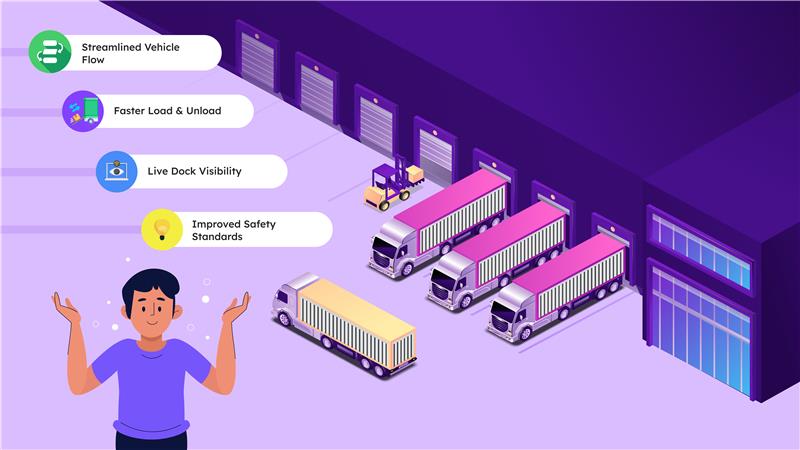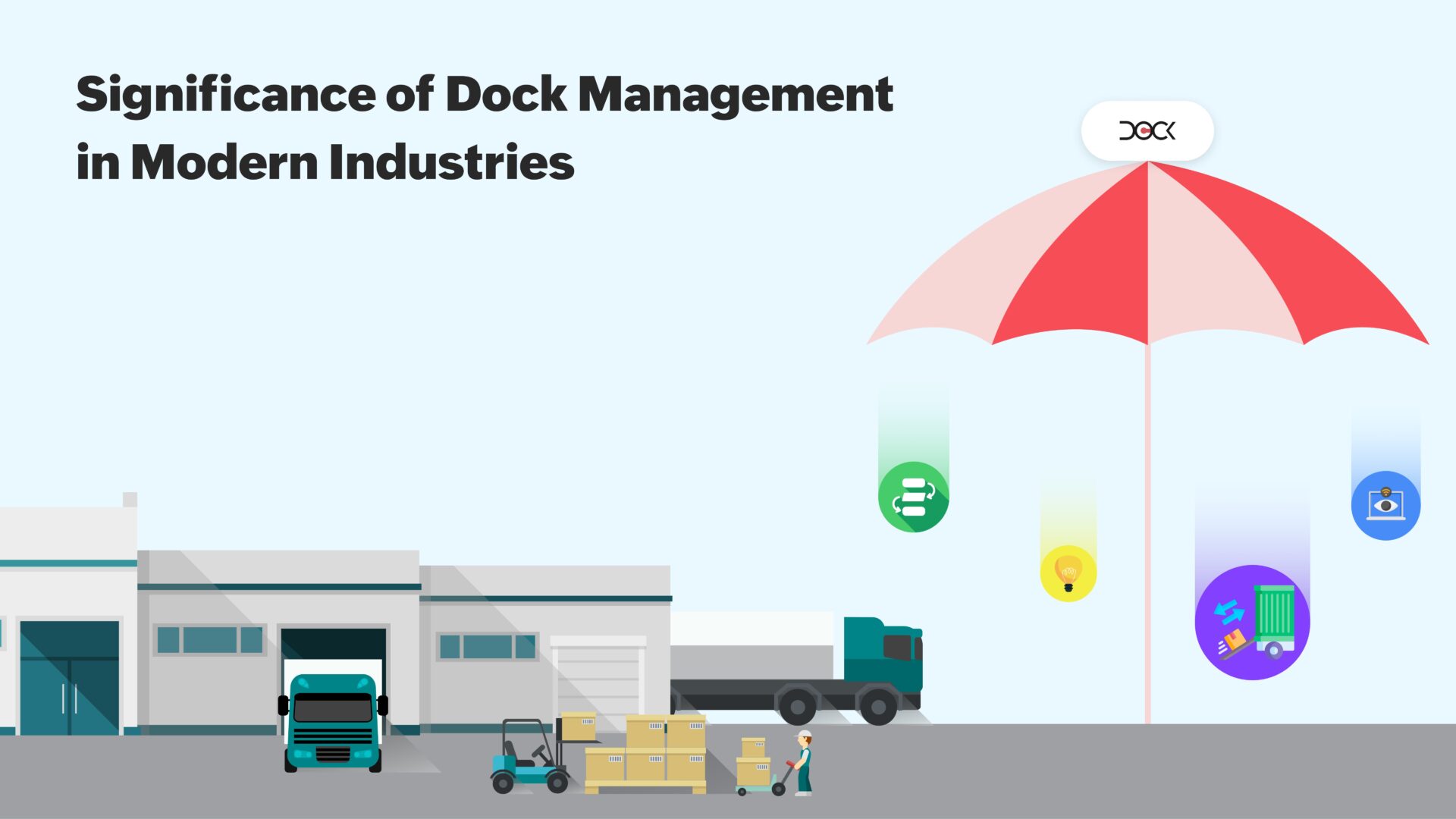Introduction
Efficient dock management is essential to guaranteeing smooth supply chain and logistics operations in today’s fast-paced industrial environment. Modern dock management systems are revolutionizing industry operations by managing real-time loading and unloading schedules and handling multiple vehicle arrivals. In addition to streamlining processes, efficient dock management reduces expenses, boosts safety, and speeds up turnaround times.
Key Features of Effective Dock Management
1. Streamlined Vehicle Flow: At loading and unloading locations, efficient vehicle circulation is crucial to avoiding bottlenecks. Vehicle scheduling is optimized, traffic is decreased, and a seamless operation is guaranteed by a well-designed dock management system. As a result, transport crews and warehouse employees coordinate better and experience fewer delays.2. Faster Load & Unload: In logistics, time is a crucial component. By optimizing dock assignments and resource use, automated dock management speeds up the loading and unloading process. This helps companies better fulfill delivery deadlines by reducing idle time, speeding up vehicle turnaround, and increasing overall operational efficiency.
3. Live Dock Visibility: With real-time visibility, supervisors have total control over what happens on the dock. Supervisors can rapidly keep an eye on vehicle status, operational progress, and port availability via live tracking. Decision-making, safety compliance, and the ability to spot possible delays before they become serious are all improved by this transparency.

Benefits of Dock Management
1. Decreased Waiting Time: Vehicles spend less time waiting for loading or unloading when dock operations are scheduled effectively, which boosts throughput.2. Improved Safety Standards: Automated scheduling and notifications reduce the possibility of human error, making the working environment for dock workers safer.
3. Optimized Resource Allocation: Effective planning makes it possible to allocate personnel, equipment, and space more effectively, which raises productivity levels all around.
4. Improved Communication: Integrated systems make it possible for drivers, warehouse workers, and logistics managers to coordinate easily.
5. Data-Driven Insights: Organizations may detect performance gaps and make ongoing operational improvements with the use of advanced reporting systems, which offer insightful data.
Conclusion
Using a smart dock management system can have a big impact in a field where every second matters. It improves the entire flow of goods through the supply chain, increases efficiency, and lowers costs. Contemporary dock management systems are more than just instruments; they are vital parts of any company striving for logistics excellence.
Contact us at support@mawalog.com if you need more information or if you have any questions.



